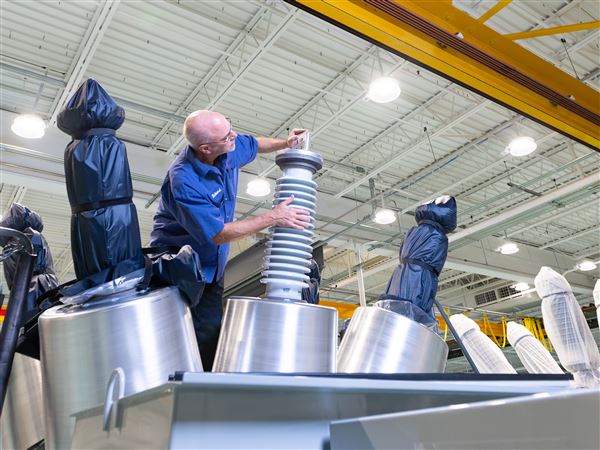There's a special word used when a classical music group gives three or more concerts in a short period at one hall: a residency. For American orchestras, residencies at the prestigious Musikverein hall in Vienna happen about as often as Mozart got writer's block or Beethoven smiled.
The Pittsburgh Symphony Orchestra will be one of the few when it settles down for four concerts in Vienna that will be the centerpiece of its three-week European tour. From Thursday to Nov. 10, the orchestra will perform in Barcelona, Madrid, Vienna, Paris, Cologne, Frankfurt, Stuttgart and Luxembourg.
"Only the best orchestras will receive this invitation" for a set of concerts in Vienna, says Peter Jarolin, classical music critic of the Austrian newspaper Kurier. "Therefore, the Pittsburgh Symphony can be considered as one of the best orchestras in the world."
That's a subjective evaluation, but consider that among U.S. orchestras only the Cleveland Orchestra has been selected in recent years, with the Chicago Symphony Orchestra to follow in the future, according to Thomas Angyan, executive and artistic director of the Musikverein.
The Musikverein is considered by many as the center of classical music-making because of its superb acoustics and because it opened in 1870 when many major composers were still alive and active. The PSO performed there three times in 2000 with Mariss Jansons, and had two concerts in 2010 with current music director Manfred Honeck. Mr. Honeck wants the affair to garner pride back in Pittsburgh when the orchestra returns: "You can guess that many other orchestras would like that!"
Especially telling is how the Vienna invitation reflects both the past and the present reputation of the orchestra. Mr. Angyan said: "The Pittsburgh Symphony has been in Vienna with Lorin Maazel, Mariss Jansons and Manfred Honeck. It is one of the major American orchestras."
Mr. Jarolin is more demonstrative, as critics can be.
"The reputation of the Pittsburgh Symphony in Vienna is a very high one. Last year, for example, the orchestra performed two concerts at the Grafenegg Music Festival and both concerts were considered by audience and press as marvelous. So we are all looking forward to the orchestra's residency at the Musikverein."
The cherry, so to speak, on top of the Sachertorte is that the PSO will make a recording at the hall, something that is not common for orchestras other than the Vienna Philharmonic. The piece? Why Mahler of course, his Symphony No. 2, "Resurrection." The choir will be the renowned Singverein.
Mr. Angyan said about a residency also benefits the recording process.
"It is vital for the quality of the concerts that an orchestra could remain for more than one or two concerts in one city," he said. "It can adapt its playing with the acoustics of the hall ... It can present more programs in order to show its qualities."
The work that will likely draw the most interest -- and controversy -- could be Mr. Honeck's expanded version of Mozart's "Requiem." It is interspersed with chants, readings of a letter from Mozart to his father, and poetry about the Holocaust. Austrian actor Michael Heltau will narrate and the Singverein and members of the Vienna Boys Choir will sing. Pittsburgh audiences saw it at Heinz Hall last week with no outcry, but the Viennese can be rather protective of composers who once walked their streets.
Among other tour repertoire, the PSO will premiere a new violin concerto by Austrian composer Herbert Willi, with Nikolaj Znaider as soloist; Austrian pianist Rudolf Buchbinder will solo in Gershwin's Piano Concerto in F; and the orchestra will perform the work it commissioned to mark the 50th anniversary of Rachel Carson's "Silent Spring," composer Steven Stucky's tone poem of the same name.
First Published: October 21, 2012, 8:00 a.m.


















